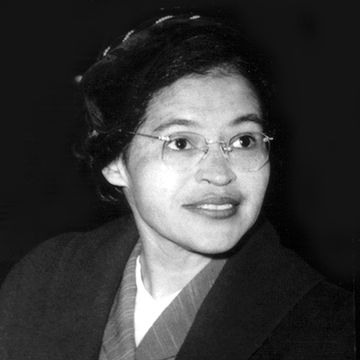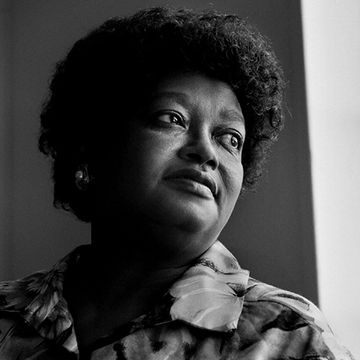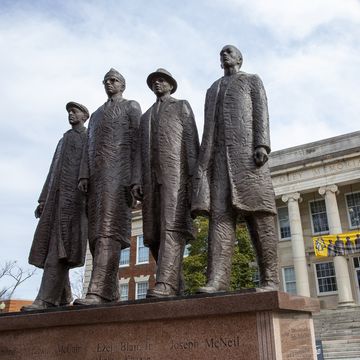1971-present
Julian Assange News: WikiLeaks Founder Reaches Plea Deal with U.S. Government
WikiLeaks founder Julian Assange is out of a British prison and set to return home after reaching a plea agreement with the U.S. government.
CNN reported that Assange, 52, agreed to plead guilty to a felony charge related to his site’s publication of classified U.S. documents more than a decade ago. According to the agreement, prosecutors will seek a 62-month sentence for Assange, equal to his time already served in high-security prison in London as he tried to avoid extradition to the United States.
American authorities have pursued Assange after WikiLeaks published confidential military records in 2010 and 2011 related to the Iraq and Afghanistan wars. Former Army intelligence analyst Chelsea Manning was found guilty of espionage and theft for supplying the documents and sentenced to 35 years in prison in July 2013. President Barack Obama commuted her sentence in 2017.
Assange was facing 18 counts from a 2019 indictment for his role in the breach, with a maximum term of up to 175 years in prison.
Who Is Julian Assange?
Julian Assange used his genius IQ to hack into the databases of many high profile organizations. In 2006, Assange began work on WikiLeaks, a website intended to collect and share confidential information on an international scale, and he earned the Time magazine “Person of the Year” title in 2010. Seeking to avoid extradition to Sweden over sexual assault allegations, Assange was granted political asylum by Ecuador and holed up at the country’s embassy in London in 2012. In 2016, his work again drew international attention when WikiLeaks published thousands of emails from U.S. presidential candidate Hillary Clinton and the Democratic National Committee. After his asylum was rescinded in April 2019, Assange was indicted in the U.S. for violating the Espionage Act.
Quick Facts
FULL NAME: Julian Paul Assange
BORN: July 3, 1971
BIRTHPLACE: Townsville City, Australia
SPOUSES: Teresa Assange (1989-1999) and Stella Moris (2022-present)
CHILDREN: Daniel, Gabriel, and Max
ASTROLOGICAL SIGN: Cancer
Early Life
Julian Paul Assange was born on July 3, 1971, in Townsville City, Australia. Julian had an unusual childhood, as he spent some of his early years traveling around with his mother, Christine, and his stepfather, Brett Assange. The couple worked together to put on theatrical productions. Brett later described Julian as a “sharp kid who always fought for the underdog.”
The relationship between Brett and Christine later soured, but Julian and his mother continued to live a transient lifestyle. With all of the moving around, Julian ended up attending roughly 37 different schools growing up and was frequently homeschooled.
Assange discovered his passion for computers as a teenager. At age 16, he got his first computer as a gift from his mother. Before long, he developed a talent for hacking into computer systems. His 1991 break-in to the master terminal for Nortel, a telecommunications company, got him in trouble. Assange was charged with more than 30 counts of hacking in Australia, but he got off the hook with only a fine for damages.
The experience didn’t deterred Assange from pursuing a career as a computer programmer and software developer. An intelligent mind, he studied mathematics at the University of Melbourne. He dropped out without finishing his degree, later claiming that he left the university for moral reasons; Assange objected to other students working on computer projects for the military.
WikiLeaks Founder
In 2006, Assange began work on WikiLeaks, a website intended to collect and share confidential information on an international scale. The site officially launched in 2007 and was run out of Sweden at the time because of the country’s strong laws protecting a person’s anonymity.
Later that year, WikiLeaks released a U.S. military manual that provided detailed information on the Guantanamo Bay detention center in Cuba. WikiLeaks also shared emails from then-vice presidential candidate Sarah Palin it received from an anonymous source in September 2008.
2016 Email Dumps
Assange and WikiLeaks returned to the headlines during the summer of 2016 as the U.S. presidential race was narrowing to two main candidates: Democrat Hillary Clinton and Republican Donald Trump. In early July, WikiLeaks released more than 1,200 emails from Clinton’s private server during her tenure as secretary of state. Later in the month, WikiLeaks released an additional round of emails from the Democratic National Committee that indicated an effort to undermine Clinton’s primary opponent, Bernie Sanders. In the aftermath, DNC Chair Debbie Wasserman Schultz resigned.
In October, WikiLeaks unveiled more than 2,000 emails from Clinton campaign chair John Podesta, which included excerpts from speeches to Wall Street banks. By this point, U.S. government officials had gone public with the belief that Russian agents had hacked into DNC servers and supplied the emails to WikiLeaks, though Assange repeatedly insisted that wasn’t the case.
On the eve of the election, Assange released a statement in which he declared no “personal desire to influence the outcome,” noting that he never received documents from the Trump campaign to publish. “Irrespective of the outcome of the 2016 U.S. presidential election,” he wrote, “the real victor is the U.S. public which is better informed as a result of our work.”
Sexual Assault Allegations
In August 2010, Assange discovered he was once again facing legal problems. Swedish police were investigating him after two women accused him of sexual misconduct. Authorities issued arrest warrants as part of the investigation into whether he had molested one woman and raped another. Both incidents were initially consensual and had occurred that month while Assange was visiting Sweden on business. Despite the warrants, the tech founder hadn’t been formally charged with any crimes.
Assange quickly denied any wrongdoing, telling The New York Times the accusations were “completely baseless,” and posted on social media the cases were “dirty tricks” and implied they could be an attempt to kneecap WikiLeaks.
Soon after, the warrants were dropped before being reissued on suspicions of rape, sexual molestation, and illegal coercion later that year. Assange turned himself in to the London police in December.
Following a series of extradition hearings in early 2011 to appeal the warrant, Assange learned on November 2, 2011, that the High Court dismissed his appeal. Still on conditional bail, Assange made plans to appeal to the U.K. Supreme Court.
Political Asylum at Ecuadorean Embassy
According to a New York Times article, Assange came to the Ecuadorean Embassy in London in June 2012, seeking to avoid extradition to Sweden. That August, the Ecuadorean government granted Assange political asylum, shielding him arrest as long as he remained on Ecuadorean territory “from British arrest, but only on Ecuadorean territory, leaving him vulnerable if he tries to leave the embassy to head to an airport or train station.”
The article went on to say that the decision “cited the possibility that Mr. Assange could face ‘political persecution’ or be sent to the United States to face the death penalty,” putting further strain on the relationship between Ecuador and Britain, and instigating a rebuttal from the Swedish government.
In August 2015, the lesser sexual assault allegations from 2010—with the exception of rape—were dropped due to statute of limitation violations by Swedish prosecutors. The statue of limitations on the rape allegations was set to expire in 2020.
In February 2016, a United Nations panel determined that Assange had been arbitrarily detained and recommended his release and compensation for deprivation of liberty. However, both the Swedish and British governments rejected those findings as non-binding and reiterated that Assange would be arrested if he left the Ecuadorian embassy.
On May 19, 2017, Sweden said it would drop its rape investigation of Assange. “While today was an important victory and important vindication, the road is far from over,” he told reporters from the Ecuadorian Embassy in London. “The war, the proper war, is just commencing.”
Assange was granted Ecuadorian citizenship in December 2017, but his relationship with his adopted country soon soured. In March 2018, the government cut off his internet access on the grounds that his actions endangered “the good relations that the country maintains with the United Kingdom, with the rest of the states of the European Union, and other nations.”
Arrest and Indictment
In April 2019, after Ecuador announced the withdrawal of Assange’s asylum, the WikiLeaks founder was arrested at the London embassy. Shortly afterward, it was announced that U.S. authorities had charged Assange with conspiring with former Army intelligence analyst Chelsea Manning to break into a classified government computer at the Pentagon.
On May 1, Assange was sentenced to 50 weeks in prison for skipping bail back in 2012, when he found refuge in the Ecuadorean Embassy.
Steeper charges arrived on May 23, when Assange was indicted in the U.S. on 17 counts of violating the Espionage Act for obtaining and publishing secret military and diplomatic documents in 2010. However, the indictment raised questions about First Amendment protections and whether investigative journalists could also find themselves facing criminal charges.
In January 2021, a UK judge ruled that Assange could not be extradited to the U.S. to face trial on charges for violating the Espionage Act, citing that the WikiLeaks founder was a suicide risk. However a year later in 2022, a British court ruled that Assange could be moved, prompting him to pursue an appeal.
Plea Agreement with U.S.
In May 2024, British authorities granted Assange leave to appeal the extradition order. Around the same time, U.S. President Joe Biden told reporters his administration was considering a request from Assange's home country of Australia to end his prosecution.
This was proven true only weeks later, as reports emerged that Assange had agreed to plead guilty to a felony conspiracy charge related to the documents leak. According to the terms, prosecutors would seek a sentence of 62 months—equal to Assange’s time already served in British prison. Assange was released on June 24 and scheduled to appear for a hearing in the Mariana Islands, a U.S. commonwealth in the Pacific Ocean.
Movie
In April 2017, Showtime announced that it would air the Assange documentary Risk, which had premiered at the 2016 Cannes Film Festival but updated with events related to the U.S. presidential election.
Wife and Children
While in prison in London, Assange married longtime partner Stella Moris in March 2022. The two met in 2011 when Moris, a lawyer, joined Assange’s legal team. The couple have two children together, sons Gabriel and Max, who were conceived when Assange in asylum at the Ecuadorean Embassy.
Assange also has an older son, Daniel, with his ex-wife Teresa, whom he married from 1989 through 1999.
Rumors of a relationship between Assange and actress Pamela Anderson surfaced after the former Baywatch star was spotted visiting the Ecuadorian embassy in late 2016. “Julian is trying to free the world by educating it,” she later told People. “It is a romantic struggle—I love him for this.”
Quotes
- If journalism is good, it is controversial, by its nature.
- It is the role of good journalism to take on powerful abusers, and when powerful abusers are taken on, there’s always a bad reaction. So we see that controversy, and we believe that is a good thing to engage in.
Fact Check: We strive for accuracy and fairness. If you see something that doesn't look right, contact us!
The Biography.com staff is a team of people-obsessed and news-hungry editors with decades of collective experience. We have worked as daily newspaper reporters, major national magazine editors, and as editors-in-chief of regional media publications. Among our ranks are book authors and award-winning journalists. Our staff also works with freelance writers, researchers, and other contributors to produce the smart, compelling profiles and articles you see on our site. To meet the team, visit our About Us page: https://www.biography.com/about/a43602329/about-us
Tyler Piccotti joined the Biography.com staff as an Associate News Editor and is now the News and Culture Editor. He previously worked as a reporter and copy editor for a daily newspaper recognized by the Associated Press Sports Editors. In his current role, he shares the true stories behind your favorite movies and TV shows and profiles rising musicians, actors, and athletes. When he's not working, you can find him at the nearest amusement park or movie theater and cheering on his favorite teams.













